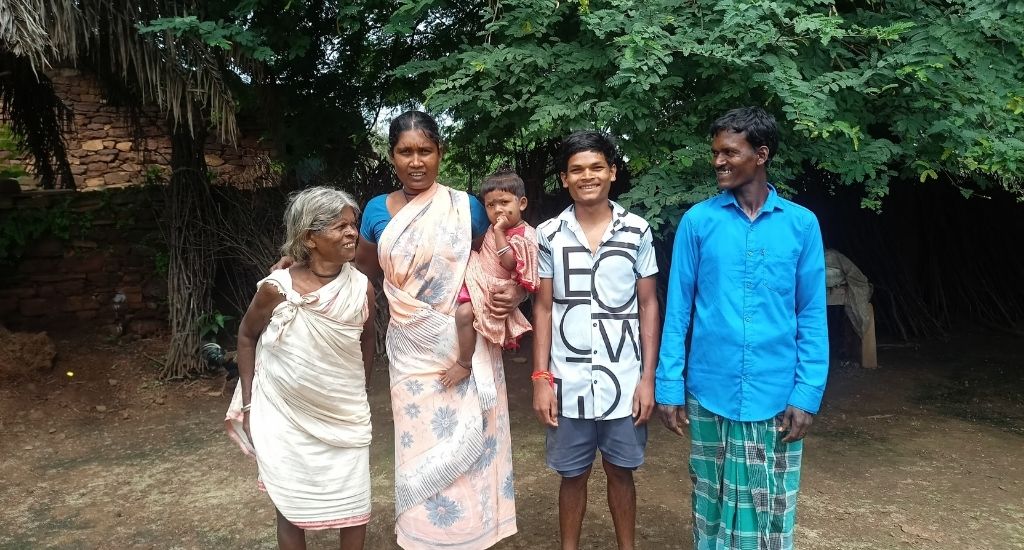
A crumpled Rs 100 note shows hope in Chhattisgarh village
A small village in Bastar, once plagued by mistrust and corruption, finds hope through inclusive planning, symbolised by one villager's offer of a crumpled Rs 100 note.

A small village in Bastar, once plagued by mistrust and corruption, finds hope through inclusive planning, symbolised by one villager's offer of a crumpled Rs 100 note.
One scorching afternoon in the village of Kaudawand in Chhattisgarh’s Bastar district I found myself in the midst of an orientation on natural resource management. We had gathered at the panchayat bhawan, hopeful yet uncertain, as the initial turnout was far less than expected.
It was quite hot and the enthusiasm from the pre-meeting seemed to have faded.
But we didn’t give up. We set up the projector and played our educational video materials, sparking discussions among those present. Slowly, more villagers trickled in, filling the room beyond capacity. It wasn’t just the heat that had slowed their arrival. It was years of disillusionment, frustration and lost trust in systems that were supposed to help them.
In the past, villagers felt that their needs were overlooked in favour of meeting government targets. Projects were often misguided. Over time, hopelessness set in, and the villagers disconnected from the planning processes that were meant to support them.

Also Read: 3Ms herald prosperity in troubled Bastar
This time, however, things were different. Transform Rural India (TRI) had introduced a more thoughtful, inclusive approach. We trained community-level facilitators on the planning process, GIS tagging and the best practices for managing land.
With a clear understanding of the terrain, the Chhattisgarh village was divided into upland, midland and lowland areas, each designated for appropriate agricultural practices. Detailed maps were created, and a plan was taking shape that felt grounded in reality.
As the session progressed, we ventured out with the villagers to geo-tag their plots of land. The process was meticulous – we took photos, recorded job card numbers and logged the exact coordinates of each plot.
Among the group, one villager stood out to me. He was a lean man with a bright smile, wearing a towel around his head and worn-out slippers. He introduced himself as Chaitan Kashyap, a farmer from Shivnaguda village. Despite the rugged terrain, he pedalled his old bicycle with ease, leading us to his plot.
When we arrived, he proudly posed for a photo and shared his dream to build a farm pond where he could raise fish and cultivate vegetables. He hoped to increase his income and lead a more prosperous life. His optimism was contagious.
As the sun began to set, we wrapped up for the day and prepared to leave. I mounted my scooty, ready to head back when I saw the same man running towards me, holding a bag of documents. He shifted the bag to his other hand and opened his fist to reveal a crumpled Rs 100 note. He insisted I take it.
Also Read: Bastar’s ‘pariwar chaupal’ fosters gender equity, rural women’s health

For a moment, I was taken aback. It was a gesture that carried more weight than the money itself. It was a symbol of the deep-rooted expectation that nothing gets done without a bribe, a mindset born from years of bureaucratic inefficiency. I politely declined. I explained that he didn’t need to pay anyone to have his work done this time. His eyes had a mixture of disbelief and relief as he realised that change was truly happening. He waved goodbye with a smile, a look of hope in his eyes that hadn’t been there before.
On my way home, I couldn’t stop thinking about the incident. The crumpled note was a window into the villager’s past – a time when promises were made but never kept. When he had to pay just to get the attention of officials.
But this time, things were different. The planning had been thorough, the participation genuine, and the process transparent. The Gram Panchayat Development Plan (GPDP) and Village Poverty Reduction Plan (VPRP) had been built with the community’s input, and for the first time in a long while, there was trust.
The Rs 100 note was a sign of change, a reminder that when people feel heard, they no longer need to bribe their way into the system.
Also Read: Live like a tribal at these Bastar homestays
The lead image on top shows Chaitan Kashyap with his family in front of his house at Shivnaguda village in Chhattisgarh’s Bastar district. (Photo by Mahashweta Pradhan)
Maheshweta Pradhan is Associate Practitioner at Transform Rural India (TRI) in Bastar, Chhattisgarh.